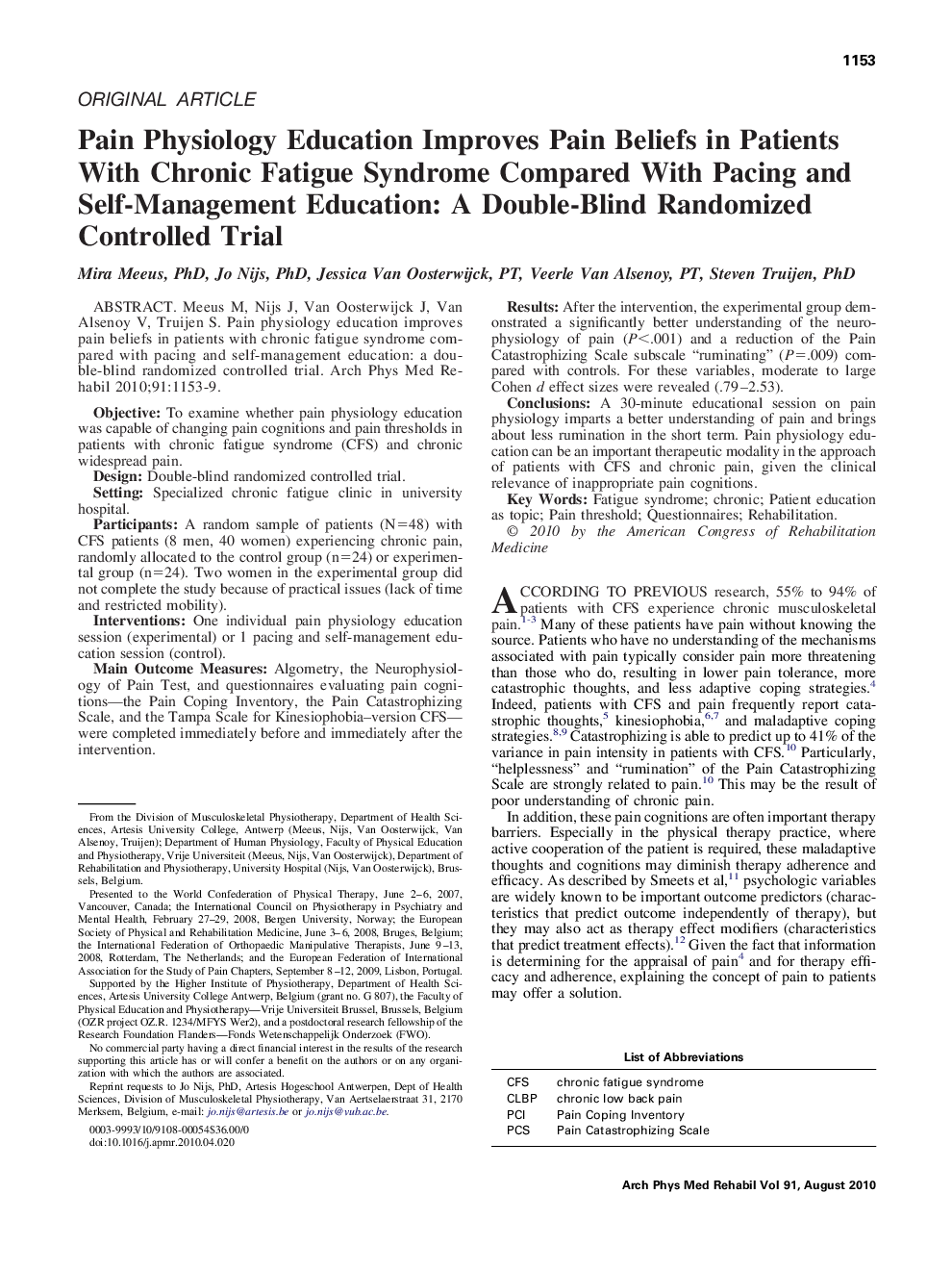| Article ID | Journal | Published Year | Pages | File Type |
|---|---|---|---|---|
| 3450682 | Archives of Physical Medicine and Rehabilitation | 2010 | 7 Pages |
Meeus M, Nijs J, Van Oosterwijck J, Van Alsenoy V, Truijen S. Pain physiology education improves pain beliefs in patients with chronic fatigue syndrome compared with pacing and self-management education: a double-blind randomized controlled trial.ObjectiveTo examine whether pain physiology education was capable of changing pain cognitions and pain thresholds in patients with chronic fatigue syndrome (CFS) and chronic widespread pain.DesignDouble-blind randomized controlled trial.SettingSpecialized chronic fatigue clinic in university hospital.ParticipantsA random sample of patients (N=48) with CFS patients (8 men, 40 women) experiencing chronic pain, randomly allocated to the control group (n=24) or experimental group (n=24). Two women in the experimental group did not complete the study because of practical issues (lack of time and restricted mobility).InterventionsOne individual pain physiology education session (experimental) or 1 pacing and self-management education session (control).Main Outcome MeasuresAlgometry, the Neurophysiology of Pain Test, and questionnaires evaluating pain cognitions—the Pain Coping Inventory, the Pain Catastrophizing Scale, and the Tampa Scale for Kinesiophobia–version CFS—were completed immediately before and immediately after the intervention.ResultsAfter the intervention, the experimental group demonstrated a significantly better understanding of the neurophysiology of pain (P<.001) and a reduction of the Pain Catastrophizing Scale subscale “ruminating” (P=.009) compared with controls. For these variables, moderate to large Cohen d effect sizes were revealed (.79–2.53).ConclusionsA 30-minute educational session on pain physiology imparts a better understanding of pain and brings about less rumination in the short term. Pain physiology education can be an important therapeutic modality in the approach of patients with CFS and chronic pain, given the clinical relevance of inappropriate pain cognitions.
